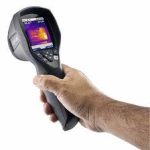 As a marine surveyor 33482, there are a variety of common issues with electrical systems that I frequently encounter during my inspections. Suncoast Marine Surveying is dedicated to providing thorough assessments of all aspects of a vessel, including its electrical systems. Here are some of the most prevalent problems that I come across:
As a marine surveyor 33482, there are a variety of common issues with electrical systems that I frequently encounter during my inspections. Suncoast Marine Surveying is dedicated to providing thorough assessments of all aspects of a vessel, including its electrical systems. Here are some of the most prevalent problems that I come across:
1. Corrosion: One of the biggest issues that I see as a marine surveyor 33482 with electrical systems on boats is corrosion. Saltwater is highly corrosive and can quickly deteriorate connections, wires, and other components. This can lead to poor conductivity, overheating, and even electrical fires.
2. Loose connections: Another common problem is loose connections. Vibration from the boat’s engine or rough seas can cause wires to become disconnected, leading to intermittent power supply or complete failure of electrical components.
3. Overloaded circuits: Many boat owners try to add additional electronics or appliances without considering the capacity of their electrical system. Overloaded circuits can lead to tripped breakers, melted wires, and potentially dangerous situations.
4. Inadequate grounding: Proper grounding is essential for the safe operation of an electrical system on a boat. Without a solid ground connection, stray currents can cause galvanic corrosion and damage to the hull and other metal components.
5. Outdated wiring: Older boats may have outdated wiring that does not meet current safety standards. This can include unshielded wires, inadequate insulation, and improper wire sizes for the loads they are carrying.
6. Lack of GFCI protection: Ground Fault Circuit Interrupters (GFCIs) are designed to protect against electric shock in wet environments such as on a boat. Many older vessels do not have GFCI outlets installed, putting occupants at risk of electrocution.
7. Water intrusion: Moisture and water intrusion can wreak havoc on an electrical system. It can cause corrosion, short circuits, and damage to sensitive electronic components.
8. Improperly installed equipment: DIY installations or work done by inexperienced individuals often result in improperly installed equipment that can compromise the safety and functionality of the electrical system.
9. Insufficient battery maintenance: Batteries are a critical component of any boat’s electrical system. Neglecting proper maintenance, such as checking fluid levels, cleaning terminals, and ensuring proper charging, can lead to premature battery failure.
10. Poorly maintained shore power connections: Shore power connections are another area where I often find issues during my inspections. Loose or corroded shore power plugs and receptacles can cause overheating, fire hazards, and loss of power.
11. Non-compliance with ABYC standards: The American Boat & Yacht Council (ABYC) has established industry standards for marine electrical systems to ensure safety and reliability. Non-compliance with these standards can result in subpar performance and potential dangers.
12. Inadequate labeling: Properly labeling wires and circuits is crucial for troubleshooting issues and ensuring safe operation of the electrical system. Missing or incorrect labels can lead to confusion and mistakes during maintenance or repairs.
In conclusion, as a marine surveyor in 33482, it is essential to pay close attention to the condition of a vessel’s electrical system. Suncoast Marine Surveying takes pride in providing comprehensive inspections that identify common issues like those mentioned above. By addressing these issues promptly, boat owners can ensure the safety and reliability of their electrical systems while enjoying peace of mind on the water.


